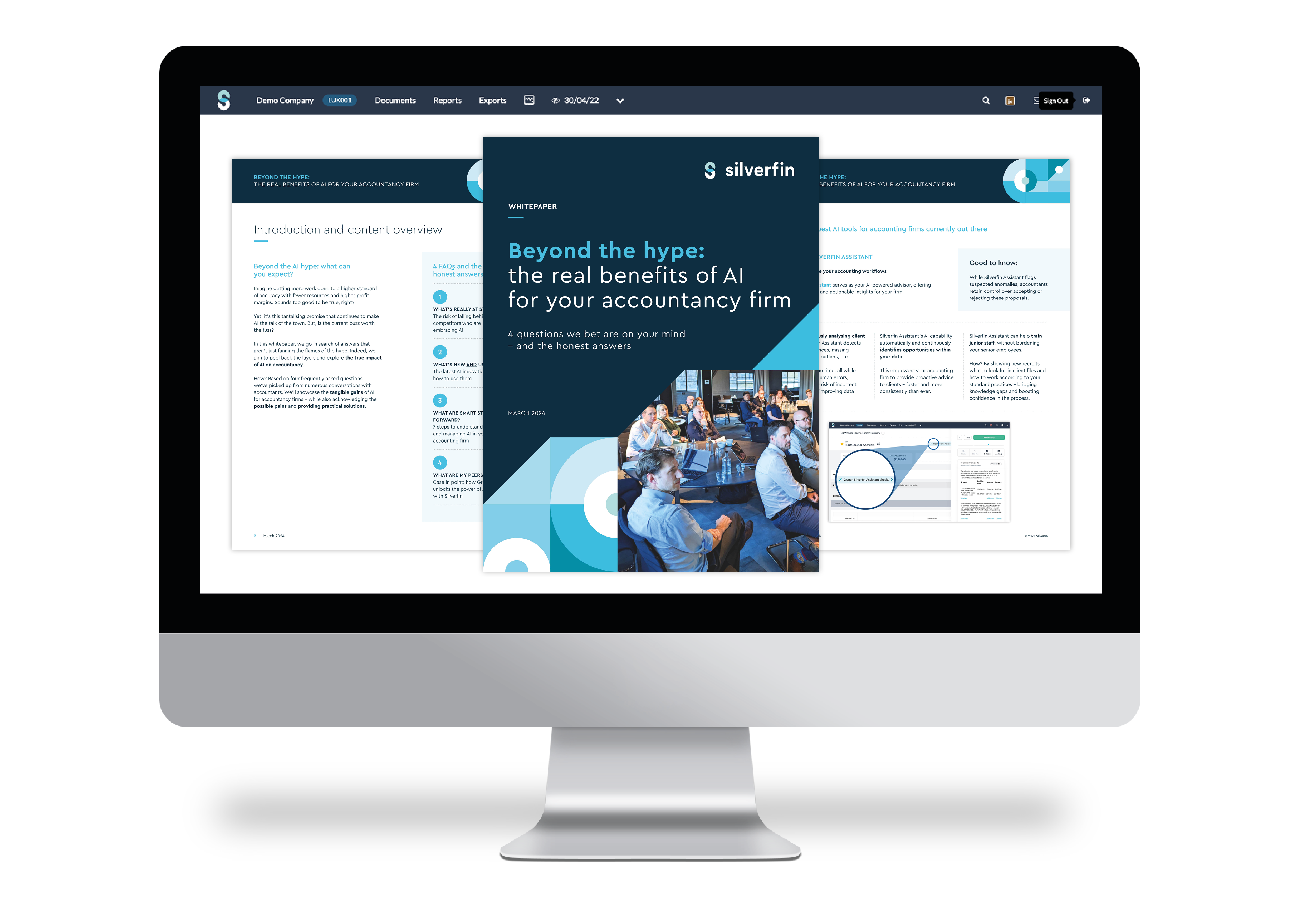AI accounting automation software helps to enhance and optimise financial processes and tasks. The technology can help streamline operations and increase accuracy, doing much of the heavy lifting for team members and removing the need for human intervention. Traditional accounting, on the other hand, refers to the conventional approach to managing financial records, which uses essential tools like spreadsheets and requires a good deal of time and attention from team members.

As the accountancy sector continues to modernise and AI-powered accounting tools become more common, there are some who are sceptical if the shift to automation is all that has been promised. It can be tempting to hold onto legacy systems and established working practices rather than give control to a software process, favouring your own skill set in the face of the unknown.
As more accountancy teams begin the transition, questioning new systems’ efficiency, accuracy, and ethical standards is understandable, so let’s examine some key differences between AI-powered and traditional accountancy.
The Key Differences Between Traditional and AI-Powered Accounting
| Feature | Traditional Accounting | AI-Powered Accounting |
| Data Processing | Manual data entry, spreadsheets – time consuming and prone to human fatigue and high error rate. | Automated data extraction and reconciliation processes of large data sets done instantly. |
| Error Rate | Higher potential in manual calculations and data input | Significantly lower with AI validation and automation |
| Financial Reporting | Periodic reporting cycles, and time-consuming data pulls and copy/paste | Automation in financial reporting generates real-time reports |
| Cost Efficiency | Labour-intensive, higher costs | Saves time and reduces staff costs |
How AI-powered accounting tools improve efficiency
- Automated data entry: Eliminates manual input errors to speed up processing.
- Automation in financial reporting: AI provides instant financial insights, improving decision-making.
- Smart reconciliations: AI-driven matching of transactions reduces time spent on account reconciliations.
- Predictive analysis: AI forecasts financial trends based on historical data, helping firms stay proactive.
The Role of Automation in Financial Reporting
By minimising manual data consolidation, accounting automation software helps to streamline and reduce the financial reporting process, traditionally a labour-intensive and error-prone activity for accounting teams. AI automates data collection, bank reconciliations, consolidation of financial data and basic report generation, leading to faster turnaround times and much improved accuracy. Machine learning models can also flag inconsistencies or anomalies and prompt deeper investigation, possibly stopping issues before they begin.
A recent Deloitte study found that companies that used AI in financial reporting reduced reporting errors by up to 37%, saving approximately 25% in time spent on closing processes. Global firms such as KPMG and PwC also report notable efficiency gains and improved audit quality by integrating AI tools into their reporting procedures.

Overcoming challenges in AI adoption
There are a number of ways to resolving obstacles to change:
- Implement structured training programmes and introducing AI gradually builds confidence and acceptance, helping to resolve any resistance to change.
- Demonstrate that most AI tools offer advanced security features, including end-to-end encryption and strict access controls, helping to put to rest any fears over data security.
- Choose AI platforms that provide flexible, cloud-based integrations for a smooth transition, which helps to ease users into the new system.
Is AI the future of accounting?
Industry experts predict that AI will augment, rather than replace, accountants. According to a 2024 survey by the Association of Chartered Certified Accountants (ACCA), 76% of firms using AI tools reported improved efficiency without reducing headcount. Leaders from top accounting firms like EY and BDO emphasise that AI enhances the role of accountants by shifting their focus from routine tasks to strategic advisory and data-driven insights.
A recent Silverfin survey shows that 56% of firms have implemented new software to automate the preparation of financial statements, and 46% have automated management reports.
As AI capabilities grow, and its use is more accepted, its integration into accounting workflows is expected to become the industry standard.
Read more in our “AI in Accounting: Market Trends” blog.
Conclusion
Without a doubt, AI-powered accounting solutions outperform traditional methods, especially in terms of speed, accuracy, and cost-effectiveness. Adoption challenges exist but like any new system, issues can be resolved. Firms that have already embraced AI are able to show how it’s streamlined operations and freeing up valuable time to focus on more strategic, higher-value tasks. To stay competitive and future-proof your practice, now is the time to explore automation.
Discover how Silverfin’s AI-powered platform can help you modernise your accounting processes.













